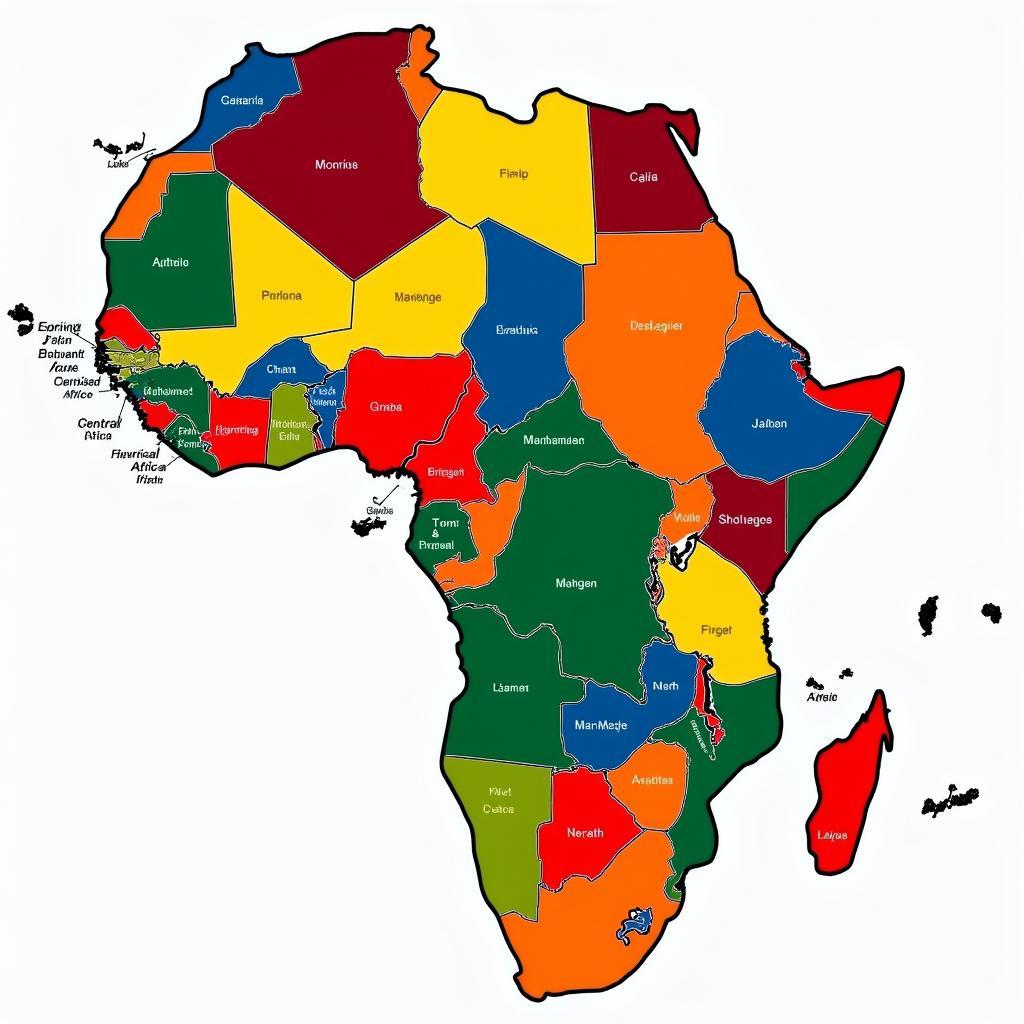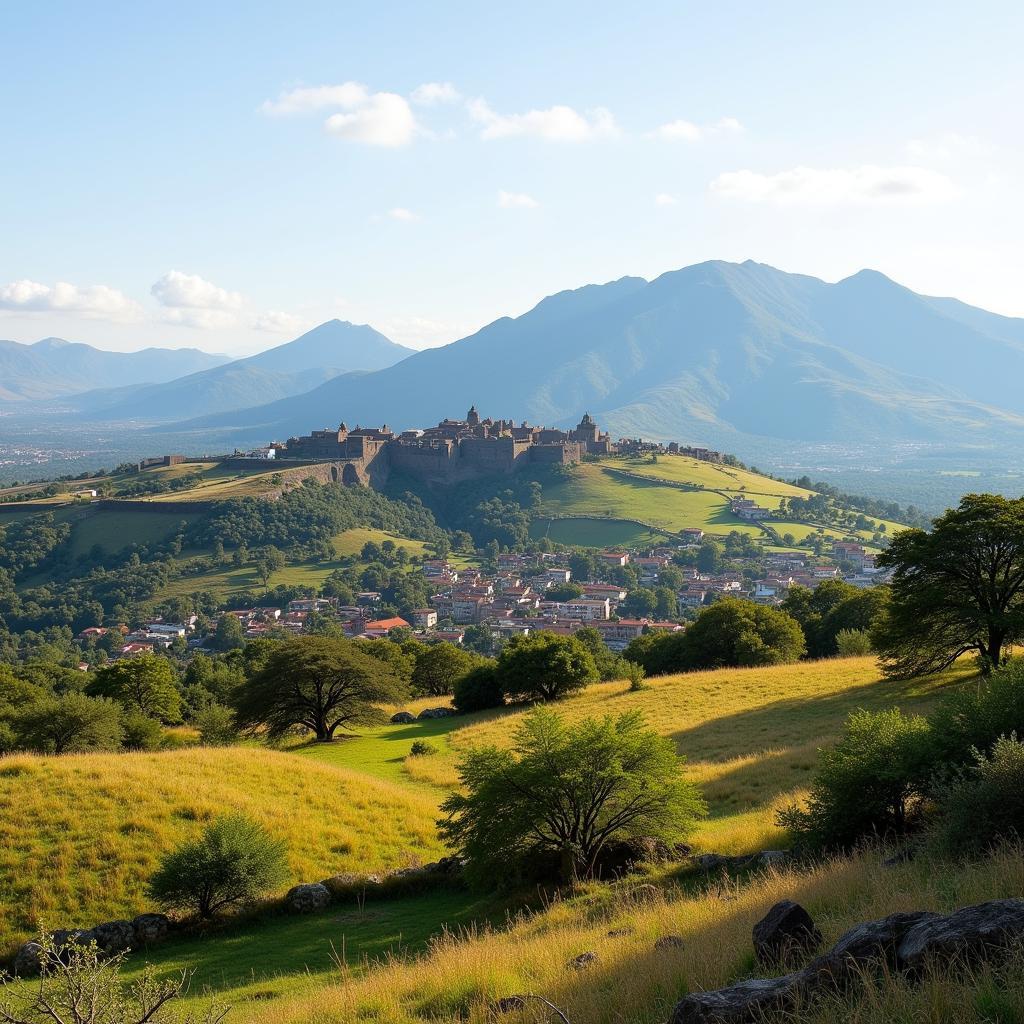African Continent Countries and Capitals List: A Comprehensive Guide
Africa, the world’s second-largest and second-most-populous continent, is a tapestry of vibrant cultures, breathtaking landscapes, and diverse people. With 54 recognized sovereign nations, each boasting unique traditions, languages, and histories, exploring the African continent countries and capitals list is a journey of discovery. This guide offers a comprehensive look at the countries of Africa and their capitals, providing valuable insights into their rich heritage and modern dynamism.
Unveiling the Diversity: Regions of the African Continent
Before delving into the specifics of each nation, it’s essential to understand the geographical and cultural diversity within the continent. Africa is often divided into five regions, each with its own distinct characteristics:
-
North Africa: This region, dominated by the Sahara Desert, is closely tied to the Arab world through language, religion, and history. Countries like Egypt, Morocco, and Algeria showcase ancient civilizations and vibrant Islamic traditions.
-
West Africa: Home to the bustling markets of Nigeria and Ghana, this region boasts a rich musical heritage, colorful festivals, and a strong tradition of oral storytelling.
-
East Africa: From the savannahs of Kenya to the volcanic landscapes of Ethiopia, East Africa is renowned for its wildlife, ancient kingdoms, and the birthplace of humanity.
-
Central Africa: Covered in dense rainforests, Central Africa is home to incredible biodiversity and indigenous cultures. Countries like the Democratic Republic of Congo and Cameroon are known for their natural resources and complex political landscapes.
-
Southern Africa: This region is characterized by diverse ecosystems, from the deserts of Namibia to the fertile plains of South Africa. It is home to major cities like Johannesburg and Cape Town, blending modern development with rich cultural heritage.
Navigating the Continent: African Countries and Capitals
Understanding the regions provides a framework for exploring the individual countries and their capitals. Here’s a complete list:
North Africa
- Algeria: Algiers
- Egypt: Cairo
- Libya: Tripoli
- Morocco: Rabat
- Tunisia: Tunis
West Africa
- Benin: Porto-Novo
- Burkina Faso: Ouagadougou
- Cabo Verde: Praia
- Côte d’Ivoire: Yamoussoukro (official), Abidjan (de facto)
- The Gambia: Banjul
- Ghana: Accra
- Guinea: Conakry
- Guinea-Bissau: Bissau
- Liberia: Monrovia
- Mali: Bamako
- Mauritania: Nouakchott
- Niger: Niamey
- Nigeria: Abuja
- Senegal: Dakar
- Sierra Leone: Freetown
- Togo: Lomé
East Africa
- Burundi: Gitega
- Comoros: Moroni
- Djibouti: Djibouti City
- Eritrea: Asmara
- Ethiopia: Addis Ababa
- Kenya: Nairobi
- Madagascar: Antananarivo
- Malawi: Lilongwe
- Mauritius: Port Louis
- Mozambique: Maputo
- Rwanda: Kigali
- Seychelles: Victoria
- Somalia: Mogadishu
- South Sudan: Juba
- Tanzania: Dodoma
- Uganda: Kampala
Central Africa
- Angola: Luanda
- Cameroon: Yaoundé
- Central African Republic: Bangui
- Chad: N’Djamena
- Democratic Republic of Congo: Kinshasa
- Republic of the Congo: Brazzaville
- Equatorial Guinea: Malabo
- Gabon: Libreville
- São Tomé and Príncipe: São Tomé
Southern Africa
- Botswana: Gaborone
- Eswatini: Mbabane (executive), Lobamba (royal and legislative)
- Lesotho: Maseru
- Namibia: Windhoek
- South Africa: Pretoria (executive), Cape Town (legislative), Bloemfontein (judicial)
- Zambia: Lusaka
- Zimbabwe: Harare
 Map of African Countries and Capitals
Map of African Countries and Capitals
Beyond the List: The Significance of Capitals
While this list provides a basic understanding of African countries their capital and currency, it’s crucial to delve deeper. Each capital city serves as the political, economic, and cultural heart of its nation.
-
Political Hubs: Capitals are the seats of government, hosting parliaments, presidential palaces, and key ministries. They are centers of decision-making and policy implementation.
-
Economic Engines: Most capitals serve as the primary economic centers of their respective countries, attracting businesses, investors, and job seekers.
-
Cultural Melting Pots: Capitals often reflect the cultural diversity of their nations, showcasing a blend of traditions, languages, and artistic expressions.
-
Gateways to Exploration: For travelers, capital cities offer a glimpse into the essence of each African nation. They are often the starting point for exploring other regions and experiencing the country’s unique offerings.
Mastering the Map: Fun Facts and Learning Aids
Memorizing a list of countries and capitals can be daunting. To make the process more engaging, consider these tips:
-
Utilize Mnemonics: Create rhymes, acronyms, or songs to help remember the names and locations of countries and capitals. African countries mnemonic devices can be very helpful for retaining information.
-
Test Your Knowledge: Take online quizzes or create flashcards to test your recall and reinforce your learning. Websites often offer interactive African countries test options to make studying fun.
-
Connect with Culture: Explore the art, music, and literature of different African countries. This connection can make the countries and their capitals more memorable.
Conclusion: Embark on Your African Adventure
This comprehensive guide provides a valuable resource for understanding the african continent countries and capitals list. Remember, this is just the beginning. Each country holds a wealth of history, culture, and natural beauty waiting to be discovered. Whether you’re a student, traveler, or simply curious about the world, let this list be your springboard for exploring the captivating continent of Africa.
FAQs About African Countries and Capitals:
1. What is the largest country in Africa?
Algeria is the largest country in Africa by land area.
2. Which African country was never colonized?
Ethiopia is widely recognized as the only African country that successfully resisted European colonization.
3. What is the smallest country in Africa?
The Seychelles, an archipelago nation in the Indian Ocean, is the smallest country in Africa by land area.
4. Which African capital city is known as the “Paris of Africa”?
Abidjan, the economic hub of Côte d’Ivoire, is often referred to as the “Paris of Africa” due to its French colonial architecture and cosmopolitan atmosphere.
5. Which city is the oldest capital in Africa?
Cairo, Egypt, is considered one of the oldest cities in Africa and has served as a capital for various empires and dynasties throughout history.
Explore Further:
-
Learn about the fascinating traditions and rituals associated with the African French kiss.
-
Discover the diverse culinary delights and unique flavors of African cuisine with our in-depth food guides.
-
Uncover the hidden gems and must-visit destinations in our travel section dedicated to exploring the wonders of Africa.
Need assistance planning your African adventure? Contact us at +255768904061 or email kaka.mag@gmail.com. Our dedicated team is available 24/7 to answer your questions and provide personalized travel support. You can also visit us at Mbarali DC Mawindi, Kangaga, Tanzania.

